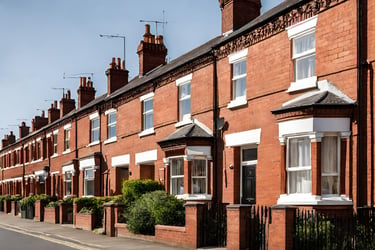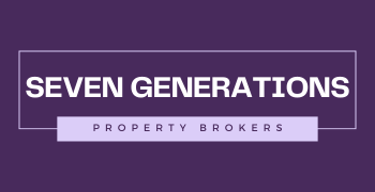Understanding Social Housing Lease Agreements: A Smart Investment for Landlords?
Explore how the lease agreements differ between ASTs and social housing investments, including why they can benefit the property owner and what to watch out for.
SOCIAL HOUSING
Seven Generations Property Brokers
7/7/20254 min read


Many landlords fear having to deal with void periods where the property is empty, managing problem tenants, and late rental payments — what if there was a solution that eliminated these risks while still generating an income from UK property?
Social housing is becoming increasingly popular among buy-to-let property investors, as it addresses many of these potential challenges of owning rental properties while providing a consistent, stress-free rental income compared with typical assured shorthold tenancies (AST).
To help you understand the growth of social housing as an investment strategy, we're going to cover the following in more detail within this article:


Get in touch with one of the team to discuss what properties we have available for sale.
Interested in Social Housing HMOs?
What is a Social Housing Lease Agreement?
A social housing lease agreement is a legal contract between a landlord and a social housing provider, allowing the provider to manage properties on behalf of the landlord.
This arrangement typically involves the social housing provider placing service users who are in need of affordable housing in the property. Unlike traditional rental agreements, social housing leases often come with specific terms related to tenancy duration and management responsibilities, which the tenant (i.e. the social housing provider) must take on.
In essence, social housing leases are designed to offer security and support to both landlords and the provider. The landlord gives use of the property, while the housing provider takes on the responsibility of housing service users, managing the property, and ensuring compliance with housing regulations.
This partnership allows landlords to enjoy a hands-off investment, as the day-to-day management is handled by professionals in the housing sector.
Key Benefits for Landlords
Contracted Rental Income
One of the primary advantages of engaging in a social housing lease agreement is the contracted rent. Landlords can rely on a consistent income, regardless of whether the property is occupied. There is also no need to rely on the occupants to pay the rent each month as this is paid by the social housing provider, often through government-funded contracts such as the AASC. This stability makes social housing an attractive option for investors seeking low-risk, high-reward alternatives to traditional buy-to-let arrangements.
Long Term Security
Moreover, social housing agreements offer long-term tenancy security. Unlike typical rental agreements, where tenants may vacate at any time after the initial AST has ended, social housing leases often result in longer tenancy durations over a number of years. This stability significantly reduces void periods and associated costs such as tenant find fees.
Service User Management
The social housing providers are responsible for managing the service users (the people living in your property). Additionally, landlords benefit from complete property management, which alleviates the burdens of maintenance and tenant-related issues. This means that landlords can focus on their investment portfolio instead of dealing with everyday tenant concerns.
Property Maintenance
Many agreements include maintenance, meaning fewer unexpected repair costs across the day to day running of the property. Most providers agree to keep the property in the original condition it was handed over to them in, less fair wear and tear, which limits the amount of work which will be required after the term of the agreement ends. In addition to this a lot of agreements do include cover of any damage by tenants to the property, giving a greater level of security for you as the property owner compared to an AST let to a private tenant, where ultimately you might end up having to pay for expenses resulting from damage by a tenant.
Potential Risks & How to Mitigate Them
As with owning any rental property, you still have obligations if your property is rented by a social housing provider and you need to understand what they are.
It is essential to understand the potential risks involved before getting started, as with any potential buy-to-let investment. While the promise of guaranteed rent is enticing, landlords should carefully review the terms of their lease agreements. Below are some areas to consider when carrying out your own due diligence.
Not All Lease Agreements Are Created Equal
Some agreements transfer maintenance costs back to landlords, and the level of responsibility taken on by the social housing provider can vary between leases.
For example, some will cover repairs of the appliances within the property or the boiler, whereas some state that these remain the responsibility of the property owner.
It's essential to conduct your due diligence, make sure to carefully review the maintenance clauses and clearly understand which party is responsible for all aspects of property maintenance.
Early Termination Clauses
Landlords should check the contract terms to understand exit conditions for both themselves and the social housing provider. Understanding how and when your lease could end helps with financial planning and managing your portfolio.
Choosing the Right Housing Provider
Working with reputable social housing providers can mitigate many common risks. Larger organisations will usually take on more of the responsibilities of a buy-to-let property as they have the resources and staffing requirements to do so, whereas smaller providers may only be responsible for managing the occupants rather than the property itself.
In addition the funding received by each provider will differ depending on the sector they operate in, what government or local authority contracts are avaialble and their incorporation status i.e. are they a company or a charity.
Choosing a suitable provider to work with should ensure that your property is well-maintained, service user management is correctly handled, and legal compliance continues to be met throughout the term of the agreement.
Should You Add Social Housing to Your Portfolio?
Social housing lease agreements present an excellent opportunity for landlords looking for a hands-off investment approach. By understanding how these agreements function and the benefits they provide—such as contracted rent, long-term tenancy security, and ongoing property management—landlords can position themselves for success.
When executed correctly, social housing leasing not only secures a steady revenue stream but also contributes positively to the community by providing essential housing services to those in need.


Get in touch with one of the team to discuss what properties we have available for sale.
Interested in Social Housing HMOs?
Registered Company Number: 15439671
Copyright © 2025 Seven Generations UK Limited, All Rights Reserved
PRS Membership Number: PRS043981
Your trusted partner for UK buy-to-let property
Quick Links
Contact Us
ICO Membership Number: ZB694046
Properties For Sale

